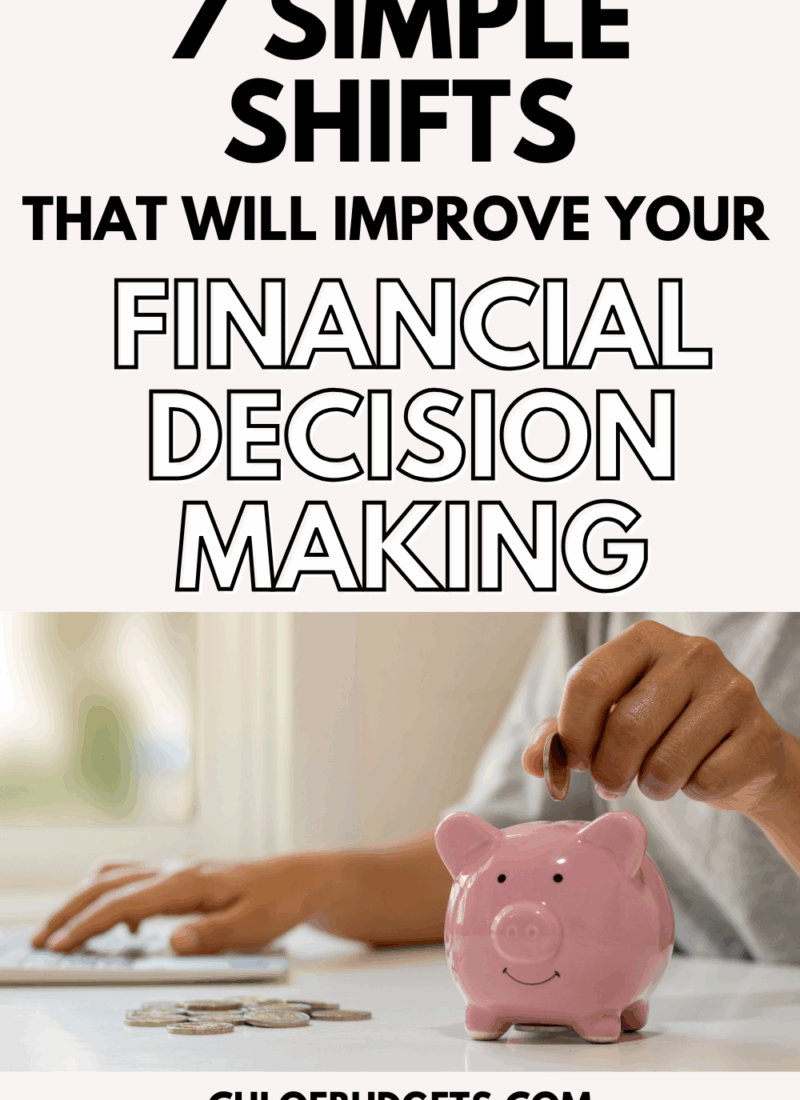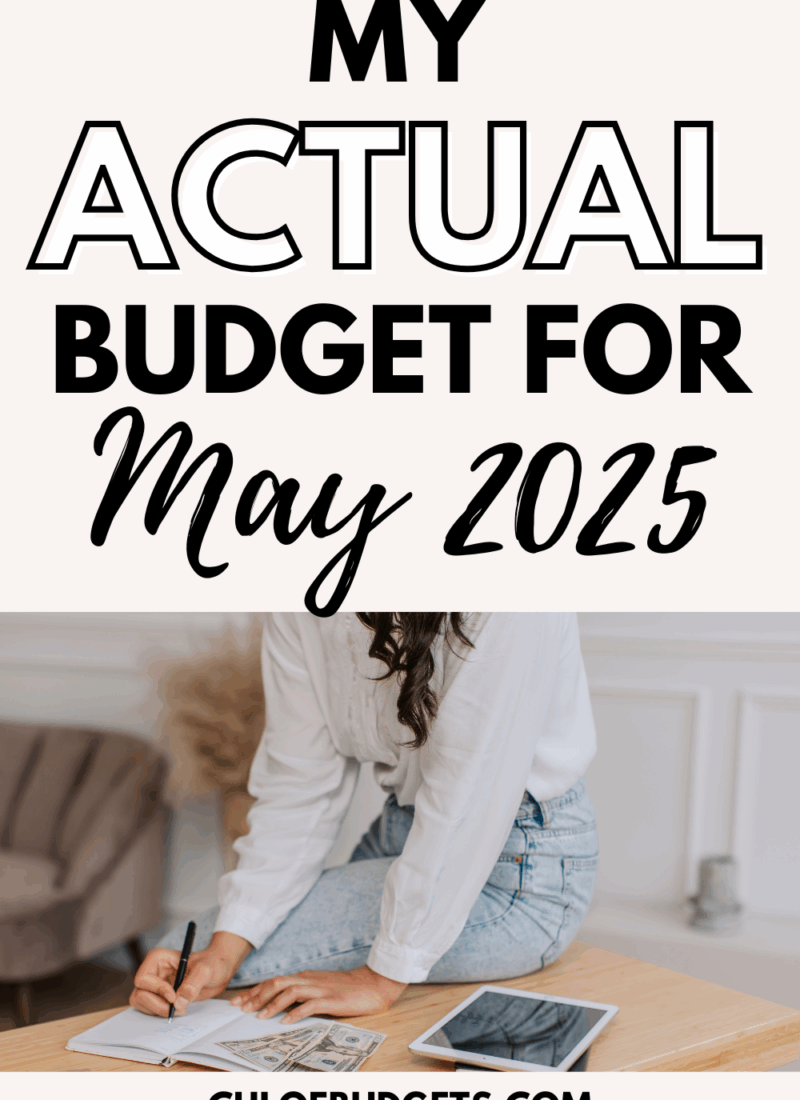Most people think being “rich” starts with money. But the truth is, wealth begins in the mind — not your bank account. You can be broke right now and still develop the mindset of someone who builds wealth, lives with intention, and makes empowered financial decisions. If you’re living paycheck to paycheck or trying to climb out of debt, adopting a “rich mindset” might seem impossible. But by changing how you think, you change how you act — and that’s how real transformation starts. Here’s how to think rich even when you’re broke, so you can lay the foundation for long-term financial success. 1. Shift From Scarcity to Abundance When you’re broke, it’s easy to live in a scarcity mindset — constantly feeling like there’s never enough. But this mentality can make you feel helpless and keep you stuck in survival mode. Thinking rich means:Believing that opportunities are everywhere. Even if money is tight today, trust that you can increase your income, learn new skills, and create a better future. Action step: Start a daily gratitude habit. List three things you’re grateful for — especially the free or low-cost ones. This builds an abundance-focused mindset even when funds are low. 2. Don’t Say “I’m Broke” — Say “Money Is Flowing to Me” Language is powerful. Constantly saying “I’m broke” reinforces the identity of someone who never has enough. A rich mindset focuses on possibility, not limitation. Thinking rich means:Using empowering language, even when your financial reality isn’t where you want it to be yet. Speak like someone who is building wealth, not someone who’s given up. 3. Invest Time, Even If You Can’t Invest Money People with a wealthy mindset know that investing is key — not just with dollars, but with time and knowledge. Thinking rich means:Spending time learning about money, developing skills, and building habits that pay off long-term. Even if you can’t invest financially right now, you can invest in your future. Action step: Read one personal finance book, take a free online course, or listen to money podcasts. Consistent learning is what sets future wealth-builders apart. 4. Visualize the Life You Want — Not the Life You’re Trying to Escape When you’re financially stressed, it’s easy to focus on what you don’t want: bills, debt, low income, or job stress. But constantly thinking about problems keeps your brain stuck in survival mode. Thinking rich means:Focusing on your vision — not your current circumstances. Wealthy people spend more time imagining what’s possible than what’s missing. Action step: Write down your ideal day. Where do you live? What do you do? How do you feel around money? Revisit it often and take small steps in that direction. 5. Practice Financial Discipline, Even with Small Amounts You don’t need a six-figure income to build discipline. In fact, learning to manage $50 wisely prepares you to handle $5,000 or $50,000. Thinking rich means:Respecting every dollar. Create a budget, avoid wasteful spending, and find ways to stretch your money while still enjoying life. Action step: Start a basic budget using the 50/30/20 rule or a free app. Even if your income is small, managing it well builds wealth habits that last. 6. Surround Yourself with a Wealth-Building Environment You become who you spend time with…
7 Simple Shifts That Will Improve Your Financial Decision Making
We all make financial decisions every day — some big, some small. From grabbing a coffee to choosing an insurance plan or deciding whether to invest, our choices shape our financial future. The problem? Many of us make these decisions reactively, emotionally, or without a clear strategy. The good news is that smarter financial decision making isn’t about being perfect with money — it’s about shifting your mindset and adopting simple habits that lead to better outcomes. Here are 7 simple shifts you can make to start improving your financial decisions today. 1. Shift from Emotional Spending to Intentional Spending Let’s face it — we all spend emotionally sometimes. Whether it’s retail therapy, a quick dopamine hit, or trying to keep up with others, emotional spending can quickly sabotage our goals. How to shift:Before you buy something, pause and ask: Creating a 24-hour rule for non-essential purchases can help curb impulse buys and promote more thoughtful choices. 2. Shift from Short-Term Thinking to Long-Term Planning It’s easy to focus on what’s right in front of you — the next paycheck, the next sale, or this month’s expenses. But long-term thinking is what builds wealth and security. How to shift:Set clear long-term financial goals like buying a home, retiring early, or paying off debt. Break those goals into smaller, actionable steps. When making a financial decision, ask yourself, “Will this bring me closer to or farther from my long-term goals?” 3. Shift from Avoiding Finances to Engaging with Them Avoidance is one of the most common money mistakes. Not looking at your bank account, ignoring debt, or avoiding budgeting can create more anxiety — not less. How to shift:Make checking in with your finances a weekly habit. Use budgeting tools like YNAB, EveryDollar, or even a simple spreadsheet to track income and expenses. The more familiar you are with your numbers, the more confident and informed your decisions will be. 4. Shift from Guessing to Data-Based Decisions Do you ever make decisions based on how things “feel” instead of what’s actually true? Many people think they spend less than they do, save more than they are, or can afford something they really can’t. How to shift:Use real data. Track your spending for 30 days. Look at your savings rate. Analyze your debt payments. Once you know the facts, your decisions become clearer and more aligned with your actual situation. 5. Shift from Saying “I Can’t” to Asking “How Can I?” Limiting beliefs like “I’ll never be good with money” or “I can’t afford that” create mental roadblocks. These thoughts shut down creative thinking and lead to inaction. How to shift:Instead of saying “I can’t afford this,” try: This small change in language leads to more proactive, solution-oriented thinking. 6. Shift from Reacting to Planning Ahead Many people make financial decisions when they’re stressed, rushed, or under pressure — like choosing a credit card when you’re desperate for cash or buying gifts last-minute on a tight budget. How to shift:Build in space for planning. When you anticipate needs, you’re less likely to make poor, rushed decisions. 7. Shift from Passive Learning to Taking Action Reading blogs…
10 Simple Mental Shifts That Will Improve Your Money Mindset
Your relationship with money isn’t just about numbers — it’s about mindset. If you find yourself stuck in the same financial patterns, no matter how hard you try to budget or save, it might be time to shift your thinking. Improving your money mindset can open doors to smarter spending, confident saving, and long-term wealth building. Here are 10 simple mental shifts that can help you transform your financial life — starting today! 1. From Scarcity to Abundance Instead of thinking “There’s never enough money,” start telling yourself, “There’s always more opportunity to earn and grow.” A scarcity mindset makes you fearful and reactive, while an abundance mindset empowers you to look for solutions, negotiate raises, or start that side hustle. Money flows more freely when you believe it’s not finite. 2. See Money as a Tool, Not a Goal Money isn’t the end game — it’s a tool to help you live the life you want. Whether it’s freedom to travel, security for your family, or the ability to give back, keeping your why in focus makes managing money feel purposeful instead of stressful. 3. Shift from Impulse to Intention Quick buys and emotional spending often lead to regret. Practice pausing before purchases and ask, “Does this align with my financial goals?” This tiny mental shift from impulse to intention can save you hundreds (or thousands) over time. 4. Believe You’re Worth Financial Success One of the most powerful ways to improve your money mindset is believing you deserve financial success. Many people subconsciously sabotage their progress because they feel guilty about earning more or being wealthy. Remember: wealth doesn’t make you selfish — it gives you the means to support yourself and others. 5. Focus on Progress, Not Perfection Perfectionism kills motivation. You don’t have to follow a flawless budget or save a huge percentage right away. Celebrate small wins: paying off one credit card, saving $50 extra this month, or saying no to an unnecessary purchase. Progress builds confidence and momentum. 6. Replace “I Can’t Afford It” with “How Can I Afford It?” This is a game-changer. Saying “I can’t afford it” shuts down your brain’s creativity. But asking, “How can I afford it?” opens up solutions — maybe through saving, side income, or cutting back temporarily. This mindset encourages action instead of resignation. 7. Embrace Learning About Money Many of us avoid financial topics because they feel overwhelming or boring. But knowledge is power. Shift your mindset to see money management as a skill you can learn — just like cooking or fitness. Start small: read a personal finance book, listen to a podcast, or take a free online workshop. 8. Stop Comparing Your Finances to Others Comparison is the thief of financial joy. Remember, what you see on social media or even among friends doesn’t show the full picture (credit card debt, family help, etc.). Focus on your own goals, timeline, and values. Your financial journey is personal — and that’s okay. 9. Practice Gratitude for What You Have A powerful money mindset shift is appreciating what you already have. Gratitude helps curb the urge to overspend on things you don’t need. It also creates a sense of contentment, which is key for sustainable financial habits. 10. Visualize Your Financial Future Take time to picture your ideal financial life. Are you debt-free? Traveling? Owning your home? Visualization isn’t just feel-good fluff — it trains your brain to recognize and act on opportunities that move you toward those goals. Write it down, create a vision board, or meditate on it regularly….
5 Simple Tips That Will Actually Reduce Your Grocery Bill
Let’s face it—buying groceries can feel like watching your paycheck evaporate one shopping trip at a time. One minute you’re picking up a few “essentials,” and the next your cart’s overflowing with stuff you might use, and you’re staring down a total…
My Real Budget for May 2025 (And How You Can Use This to Build Your Own!)
Hey friends 👋 Welcome to the first post in what I hope becomes a super helpful, real, and slightly messy (because… life) budgeting series. This is not some Pinterest-perfect financial breakdown or a copy-paste “how to budget” post. Nope—this is…
5 Simple Hacks That Will Improve Your Budget
Let’s be honest—budgeting can feel like a chore. Between bills, unexpected expenses, and trying to actually enjoy your life, managing your money can get overwhelming. But what if you didn’t need a finance degree, a complicated spreadsheet, or even a…





